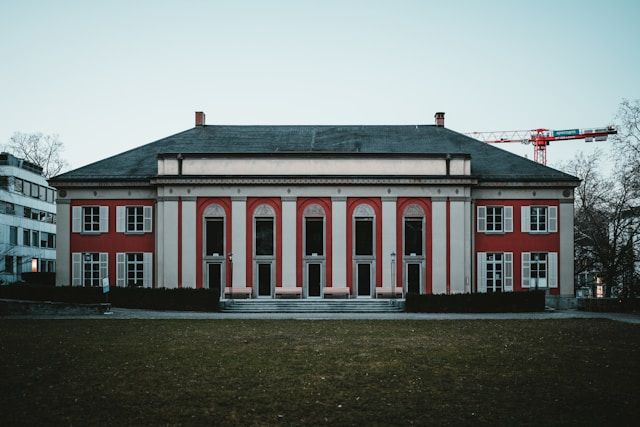Back
The Complete Michigan Airbnb Host Lodging Tax Guide: Airbnb Michigan Occupancy Tax Breakdown
Navigate Michigan-specific lodging & occupancy taxes for Airbnb and VRBO rentals with our comprehensive guide for short-term rental owners.
May 1, 2025

Written by:
Jeremy Werden
May 1, 2025

⚡️
Reveal any property's Airbnb profitability
Thinking about launching your Airbnb in Michigan? Understanding the state’s lodging and occupancy tax rules is essential. Here’s a clear, up-to-date guide to help you navigate exactly what you need to collect, remit, and watch out for-whether you’re in Detroit, Grand Rapids, or a lakeside village.
State-Wide Lodging and Occupancy Taxes in Michigan
In Michigan all short-term rentals are subject to the state 6% lodging (use) tax. The 6% use tax applies to rooms or lodging furnished by hotels, motels, or other accommodations, including vacation rentals, for stays under 30 days. Michigan does not allow any additional local sales/use tax beyond this 6%. By law, the person providing the lodging must collect the 6% state tax on each booking and remit it to the Michigan Department of Treasury.
Does Airbnb or VRBO Collect and Remit Taxes in Michigan?
If you use Airbnb or VRBO, the platform typically collects and remits the state use tax and any specific county lodging taxes they’re contracted to handle. If you list on other platforms or offer direct bookings, you’ll be responsible for collection.
Hosts are still responsible for other local taxes or fees not collected by the platform, and should always verify their obligations with local authorities.
City and County-Specific Local Tax Requirements
Some Michigan counties and cities add their own lodging or occupancy taxes on top of the state use tax. These local taxes fund tourism, convention centers, and community improvements.
Kent County (Grand Rapids and Surroundings)
Kent County is a Midwest tourism hotspot, home to Grand Rapids’ booming arts and sports scene. To keep up with growing infrastructure needs, the county recently increased its lodging excise tax.
The total taxes applied to a short-term stay in Kent County amount to 18%. This includes a 6% State Use Tax, an 8% Kent County Lodging Excise Tax, and a 4% Marketing Assessment, which is allocated to Experience Grand Rapids.
Ingham County
Similar to Kent County, Ingham County has also recently increased its lodging tax from 5% to 8%. This brings the total lodging taxes to 14%, including the 6% State Sales Tax. Most proceeds fund Choose Lansing, the area tourism bureau, and support local convention and entertainment facilities.
Example Lodging Tax Calculation For an Entire Property Kent County
A 3-night stay at $130 per night.
- Total nightly Rate: $130 x 3 = $390
- Cleaning Fee: $50
- Total Listing Price for a 3-night stay: ($130 × 3) + $50 = $440
- Michigan State Lodging Tax (6%): $440 x 0.06 = $26.4
- Kent County Lodging Excise Tax (8%): $440 x 0.08 = $35.2
- Marketing Assessment (4%): $440 x 0.04 = $17.6
- Total Tax Collected (18%): $79.2
- Total Guest Payment: $440 + $43.2 = $519.2
Always verify with your local city or county treasurer’s office for the most up-to-date requirements, and keep an eye on legislative updates that could impact your Airbnb business in Michigan.
Wrapping Things Up
Michigan’s lodging taxes fund tourism promotion and state improvements, helping make the state more attractive for visitors and hosts alike. As always, check with city and state authorities or consult a tax professional to ensure you’re fully compliant.
These tax ranges are meant for general information purposes. Local counties and even cities can have more specific rates that only apply to them. For this reason, we still highly recommend checking out the local STR regulations in your area or contacting local officials for more information.
Airbnb Tax Deduction Calculator
Paying too much in taxes? We have the perfect solution. Simulate an Airbnb home purchase below.
Purchase Price
$450K
Structure Value
70%
Apply Trump's Tax Cut (Bonus Depreciation)
Depreciation
$117,695
Interest
$21,600
Tax
$6,750
Year 1 Deduction
$146,045